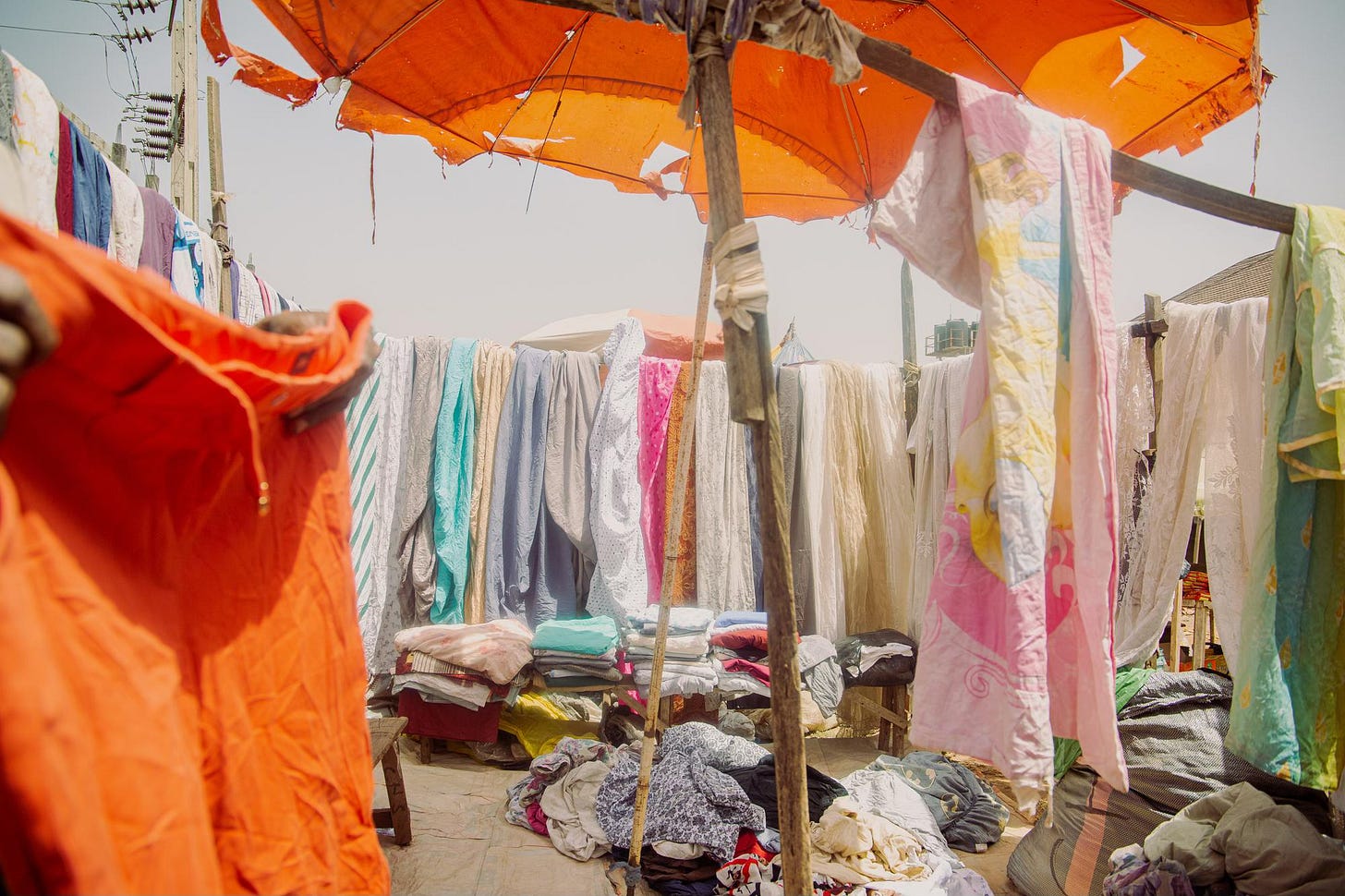Notes on Living is a column of considered points of view on how we co-create this life. What stirs our hearts? What feeds us? How do the thoughts that just won’t let go ripple through our lives and our communities? How are we finding belonging/meaning/healing in all this?
Here, Anthonia Chukwu, a journalist in Abakaliki, reflects on the origins and manifestations of her self-esteem issues over the years.
I once sat in the wardrobe for hours, staring at nothing, unable to explain why I felt like I was carrying a grief I hadn't buried. Sometimes I would cry, other times I would remind myself to forgive everyone who made me feel that way—and myself, for letting it happen.
I’ve tried to trace where it all began—this weight I carry. And maybe, just maybe, it started with the way I was first taught to see myself, not through my own eyes, but through the confused stares of others. Sometimes I feel like I’ve gotten over the pain and the hurt that once made a phase of my life hell and then suddenly, a comment about my body or the way I look is made, and all the hurt I thought I had buried comes crawling out and eating me whole all over again.
When I was about eight or nine, I started to assume that something was wrong with me. My mother used to manage a small bar where married men came to drink, smoke, and eat pepper soup. It was the way they looked at me, like I was something to be figured out. They were always unsure: boy, girl, something else? They usually went with boy because of how I dressed and looked. It irked me every time. I was a girl. I intended to stay that way.
Then I began to notice things: my wide nose, short hair, bare face. I had no jewelry. No smile either. I didn’t smile because there was nothing to smile about. I cried often, pushed people away, and found comfort in sadness.
I once fought a boy during block rosary prayers for insulting me. I fell and scraped my knee on the asphalt concrete, and when I got back home, my mother accused me of ‘chasing boys’. Still, a part of me felt weirdly flattered. If he insulted me, ran, and I chased after him, maybe he saw me as a girl. Another boy I liked used to lift my skirt and feel my thighs during prayers. I knew it was wrong, but I let him. Maybe if he liked my body, then I was desirable. Maybe I wasn’t ugly after all. This memory stays like the scar on my knee as a reminder of how often I have been misunderstood, even by myself.
At sixteen, my first boyfriend called me ugly. Unpleasant. Hideous. Words carelessly thrown, yet permanently embedded. I was hurt beyond words. I remember looking at a photo of myself, young and smiling in my mother’s wig, taken with a Tecno F1. That picture became a mirror. Suddenly, my features felt exaggerated. I started to see things in my face I had never noticed before, a nose that could be narrower, and I couldn’t unsee them. Words do that to a person– reshape your image of self, of a person, an event, or even life in its entirety.
Seeking male validation became a full-time job. Laughing at sexist jokes. Smiling when I didn’t want to. A man had called me ugly, so I needed to prove him wrong—to prove I was beautiful and desirable to other men. And in my world, that meant being seen by men. Approved by them. But it never worked.
And it wasn’t just men. I remember taking a selfie with my friend after class one day, she looked at it and said, “You’re ugly.” Just like that. Again. I laughed it off like I had accepted it. But I hadn’t. Laughing was understanding. Not acceptance.
I had to learn to see myself through my own eyes and not theirs. And to accept that as much as life brings different shapes and sizes of pain, my pain does little to nothing to change what already exists about myself. The pain I experience in those moments of rejection would do little to nothing to change what already exists.
I can acknowledge that the pain is there. Try to ignore it. Appreciate it. Allow myself to feel it. Accept that it hurts. Accept that feeling pain is part of what makes me human. And also recognise that the pain and its source do not define me or dictate how I live my life. Neither do I have to live my life in reaction to it..
I’m not healed. I still flinch at photos. Still wonder if I’m good enough. But I’ve learned that healing isn’t forgetting. It’s forgiving—over and over. It’s crying, then waking up and doing something ordinary, like brushing your teeth or drinking tea. It’s finding power in not explaining your scars to everyone because eventually, people find their people, and their people find them beautiful. And if there is a waiting season before the finding happens, I can take up the responsibility of being my person.


